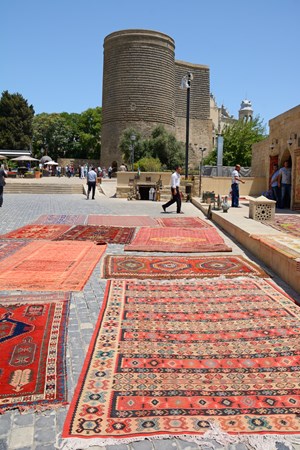UOT: 316
DOI:10.30546/3006-0346.2024.3.81.0206
Summary
Ulviyya Mirzayeva
Azerbaijan University, PHD student
Email: [email protected]
Necessity of Deinstitutionalization
from the perspective of child development.
A review of deinstitutionalization and alternative care system from the context of Azerbaijan
In the article, the impact of institutions on child development is brought to the fore, and the effects of deinstitutionalization, that is, the transfer of children from institutions to families, on child development are discussed. There are many studies on the impact of institutions on child development, and the results of these studies show that the situation is quite different in the family and in boarding schools/orphanages/other children's institutions. In order to better understand the effects of living in an institution and in a family on child development, it is valuable to follow the development of children who have been reintegrated, that is, returned home from the institution. The article provides information on the results of some research works conducted in this field
From the perspective of Azerbaijan, there is talk of deinstitutionalization and applying to a number of approved schemes in creating an alternative care model. In the field of deinstitutionalization and alternative care from 2008 to now, both NGOs and the reforms carried out by the State and statistics are brought to attention.
Keywords: Deinstitutionalization, alternative care, foster care, alternative care system, institutional care, types of social services, IQ increase, Bucharest Early intervention project, the effect of living in an institution on the child's abilities.
Резюме
Ульвия Мирзаева
Азербайджанский Университет, диссертант
Электронная почта: [email protected]
Необходимость деинституционализации с точки зрения развития ребенка. Обзор деинституционализации и системы альтернативного ухода в контексте Азербайджана
В статье на первый план выдвигается влияние проживания детей в учреждениях на развитие ребенка, а также обсуждаются последствия деинституционализации, то есть перевода детей из учреждений в семьи, на развитие ребенка. Существует множество исследований влияния учреждений на развитие ребенка, и результаты этих исследований показывают, что ситуация совершенно различна в семье и в интернатах/детских домах/других детских учреждениях. Чтобы лучше понять влияние жизни в учреждении и семье на развитие ребенка, полезно проследить за развитием детей, реинтегрированных, то есть вернувшихся домой из учреждения. В статье представлена информация о результатах некоторых исследовательских работ, проведенных в этой области.
С точки зрения Азербайджана, ведутся разговоры о деинституционализации и применении ряда утвержденных схем при создании модели альтернативного ухода. В сфере деинституционализации и альтернативного ухода с 2008 года по настоящее время внимание уделяется как НПО, так и реформам, проводимым государством, и статистике.
Ключевые слова: деинституционализация, альтернативный уход, приемная семья(фостер), система альтернативного ухода, институциональный уход, виды социальных услуг, повышение IQ, Бухарестский проект раннего вмешательства , влияние институционального ухода на развитие навыков ребенка.




